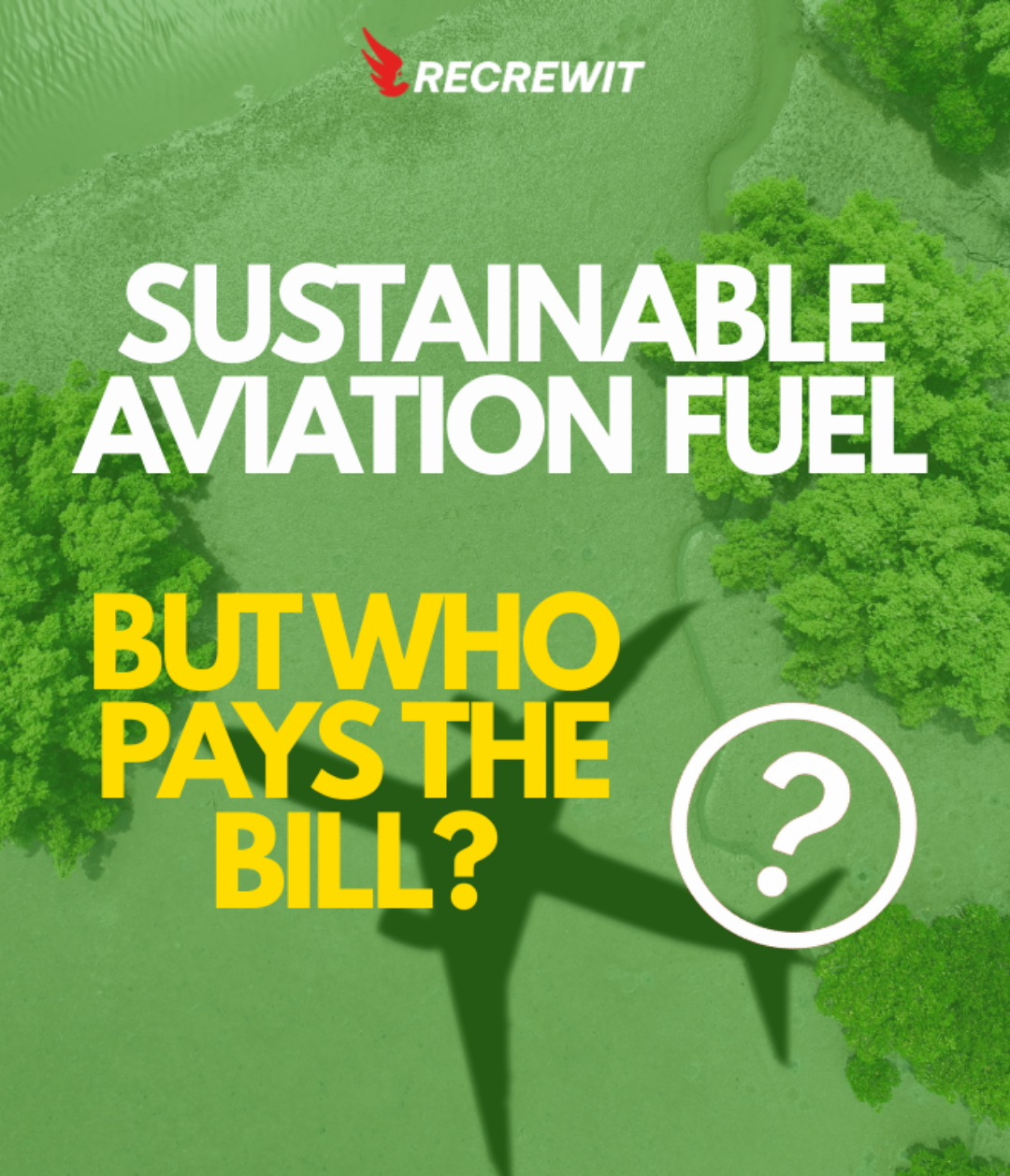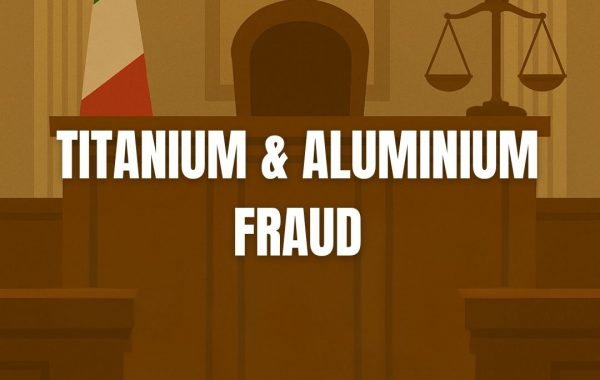
Recrewit Insight: Europe’s Flightpath to Sustainable Skies with ReFuelEU Aviation
The aviation industry – once a symbol of boundless possibility – is now at a crossroads: technology allows us to fly further and faster, but its carbon footprint can’t be ignored. Enter the European Union’s groundbreaking ReFuelEU Aviation Regulation, a central element of the “Fit for 55” climate agenda that aims to dramatically accelerate decarbonisation of air travel.
What is ReFuelEU Aviation?
ReFuelEU Aviation is an EU regulation that mandates increasing blends of Sustainable Aviation Fuels (SAF) in jet fuels supplied at EU airports:
- 2% SAF by 2025
- 70% SAF by 2050
These share targets include a ramp-up of synthetic aviation fuels, starting at ~0.7% in 2030, rising to 35% by 2050.
SAFs may include synthetic fuels, advanced biofuels, and recycled-carbon aviation fuels that meet sustainability criteria under the Renewable Energy Directive (RED)
Market Dynamics & Flexibility
For the decade 2025–2034, SAF blending obligations feature a flexibility mechanism: aviation fuel suppliers can average SAF compliance across multiple airports – rather than delivering exact targets at each location – allowing operational adaptability as supply chains mature.
Beyond SAF: Navigating Tankering
To curb the environmentally harmful tankering practice – where airlines carry extra fuel to avoid refuelling at destination airports – ReFuelEU mandates:
- Aircraft must refuel at least 90% of their required annual fuel at the departure (EU) airport.
Noncompliance may result in monetary penalties – up to twice the cost of the missing fuel at average annual prices
Reporting, Transparency & Passenger Empowerment
SAF and aircraft operators must report annually to the Union Database for Biofuels (UDB) with data in tonnes – for SAF shares, certification, fuel quality, and more.
Additionally, a voluntary Flight Emissions Label (FEL) will empower passengers: by mid‑2025, flights within or departing the EU will be marked with standardized, comparable emission data at booking, promoting transparency and combating greenwashing.
Why It Matters — and What Challenges Lie Ahead
Environmental Promise
The regulation is expected to slash aviation CO₂ emissions by up to two‑thirds by 2050 compared to a no-action scenario.
Industry Response
While SAF mandates underpin market certainty, IATA warns that Europe’s limited SAF production—and reliance on fuel imports – makes meeting targets expensive and inefficient, with low availability and soaring costs rendering environmental benefits questionable
Recrewit Take: Positioning Recrewit in the Green Journey
- Strategic Relevance: This regulation underscores aviation’s pivot toward sustainability – vital for job seekers, recruiters, and businesses in aerospace, energy, and green-tech sectors.
- Skill Opportunities: Demand will surge for talents in SAF production, certification, lifecycle assessment, regulatory compliance, and sustainable supply chain management.
- Future-Gazing: Recrewit can spotlight emerging roles and success stories – from SAF plant operators to aviation sustainability analysts.
Quick Reference: ReFuelEU Regulation at a Glance
| Aspect | Details |
| SAF Targets | 2% by 2025, rising to 70% by 2050; synthetic fuels: ~0.7% (2030) → 35% (2050) |
| Flexibility Period | 2025–2034: Weighted-average compliance across airports |
| Tankering Rule | ≥ 90% of annual fuel must be uplifted at EU departure airport |
| Flight Emissions Label | Voluntary scheme launching mid-2025 to inform passengers |
| Reporting | Obligatory reporting by fuel suppliers and operators to Union Database (UDB) |
In summary: ReFuelEU Aviation is Europe’s bold initiative to decarbonise aviation through mandated SAF use, enforced tankering reforms, improved reporting, and passenger awareness tools. For the workforce and companies, it signals a profound shift – one that Recrewit is ideally placed to help navigate.


